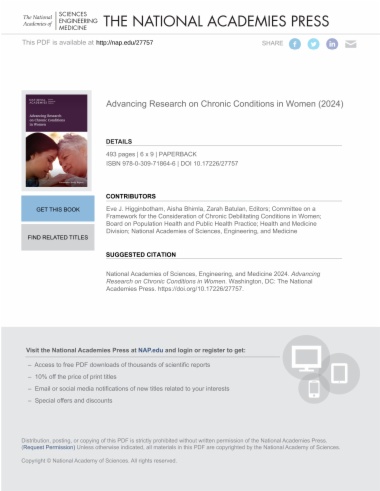

Women in the United States experience a higher prevalence of many chronic conditions, including Alzheimer's disease, depression, and osteoporosis, than men; they also experience female-specific conditions, such as endometriosis and pelvic floor disorders. A lack of research into both the biological and social factors that influence these conditions greatly hinders diagnosis, treatment, and prevention efforts, thus contributing to poorer health outcomes for women and substantial costs to individuals and for society.
The National Institutes of Health's Office of Research on Women's Health asked the National Academies of Sciences, Engineering, and Medicine to convene an expert committee to identify gaps in the science on chronic conditions that are specific to or predominantly impact women, or affect women differently, and propose a research agenda. The committee's report presents their conclusions and recommendations.